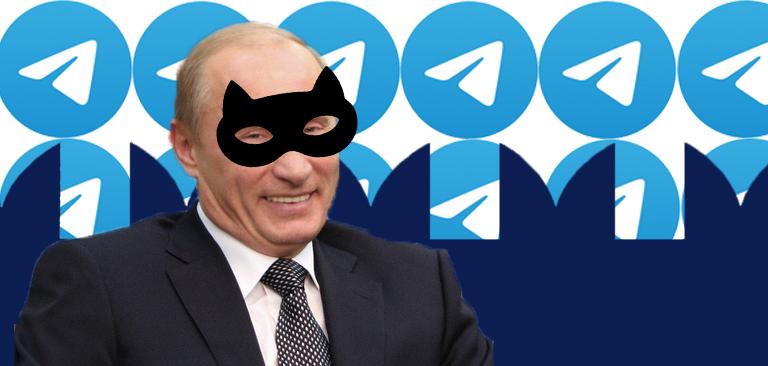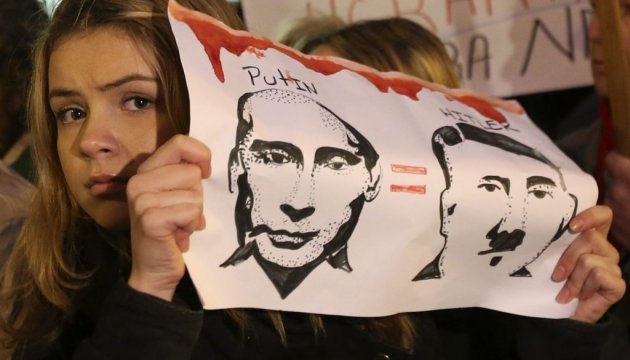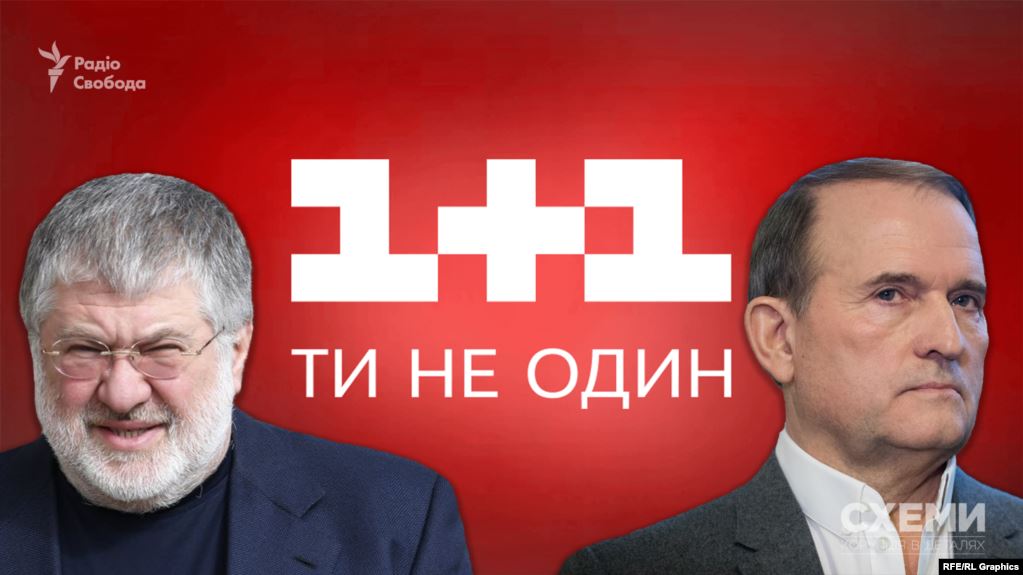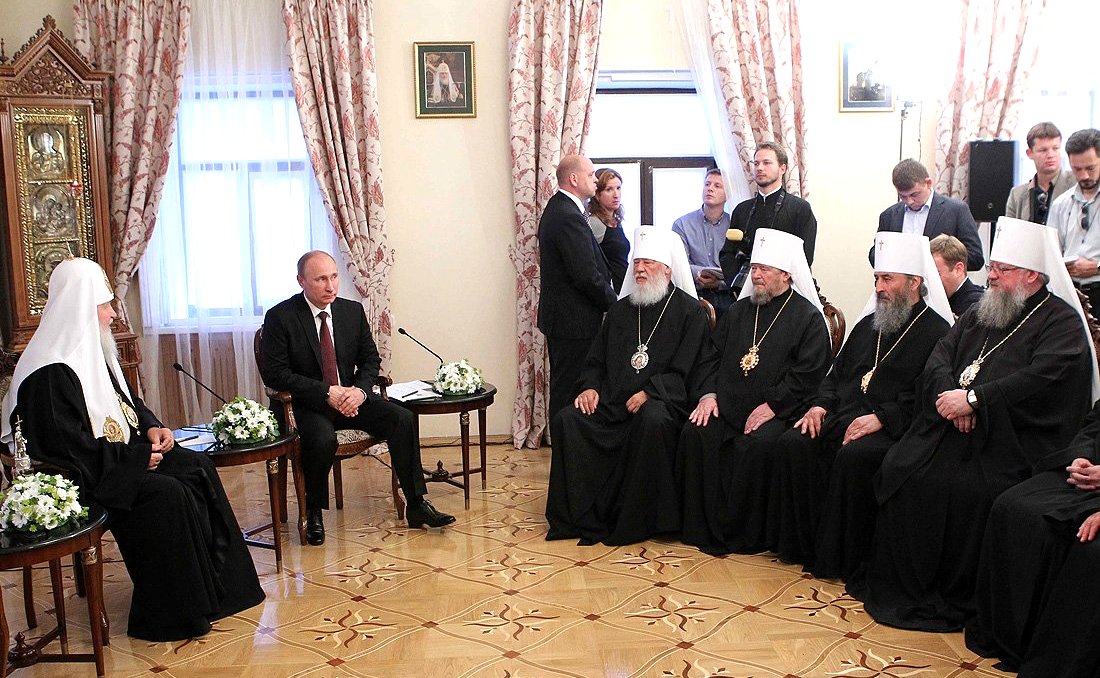Telegram, the Russian anonymous social media giant of Pavel Durov, is the conduit for a massive pro-Russian influence operation over Ukrainian politicians, an investigation by texty.org.ua journalist Liubov Velychko has revealed.
The investigation prompted a flood of harassment of Ms. Velychko, indicating that it struck a raw nerve with its objects.
Texty’s piece suggests it’s highly likely that popular anonymous Telegram channels favorited by MPs of the ruling Servant of the People party are run from Russia - and it looks like they are influential in pushing a pro-Russian agenda at the highest Ukrainian political echelons.
The rise of the Telegram empire
In 2014, Pavel Durov was pushed out of the ownership over VKontakte, a Russian Facebook ripoff he created, which is now suspected of abundantly sharing its user data with Russian special security services.
Perhaps this is the reason why his next media-startup, which boomed after Durov left Russia in self-imposed exile, is religiously anonymous. The whereabouts of Telegram’s office are unknown, as are the employees, developers, and policy for dealing with illegal content.
As of October 2019, Telegram had 300 million monthly users, according to a Complaint of the US Securities and Exchange Commission - one of the few freely available data sources about Telegram. It is now the messenger of choice in poor and undemocratic countries; it is also favored by Islamic terrorists. In 2019, the top-5 countries by the number of Telegram channels were Russia, Iran, Uzbekistan, Ukraine, and Kazakhstan.

In Russia, Telegram had become the main information platform for leaks and manipulations.
An investigation by the Russian media Project revealed how Kremlin-affiliated figures made their way into the Telegram-sphere by using affiliated channels and paying for external popular channels to publish their posts via contractors - or, on the opposite, to not publish information critical to the Kremlin.
[highlight]The venality of the owners of the popular anonymous channels made publishing anything a question of budget[/highlight], and the incendiary nature of “secret” information “leaked” from the Kremlin to Telegram ensured high citation rates in mainstream media, even in the opposition outlets.
Thus, Telegram became one of the major factors behind a campaign to discredit opposition presidential candidate Aleksei Navalny, Project writes.
“Telegram is, first of all, a commercial platform. And the channels will publish whatever, if they get paid. Now it’s absolutely impossible to understand who publishes what and for whom. The Kremlin’s goal was exactly this,” Mihail Rubin, the deputy editor-in-chief of Project told liga.net. “We can say that our opponent eats babies for breakfast and take this to the telegram channels which will probably publish it. The only question is the price.”
Telegram’s empire of anonymous channels in Ukraine

In Ukraine, Telegram is now a major source of pro-Russian disinformation, according to an investigation by the Ukrainian media liga.net.
The Russian incursion into the Ukrainian Telegram segment happened in 2018-2019, during the active phase of the presidential campaign when 15 new “Ukrainian” channels were created. These channels were promoted by Russian anonymous channels.
The new “Ukrainian” channels were like their Russian counterparts. Each day, they publish made-up “insider” information, adding emotional comments, and creating the impression that they are revealing “secrets.” But they are also used by Russian special services to exacerbate the situation in Ukraine.
For instance, one bot network neutralized by the Ukrainian Security Service (SBU) was organized by Russian citizens together with IDPs from occupied Donbas. The group registered anonymous Telegram channels and helped spread disinformation with the aim of “torpedoing trust in state institutions.”

The ease with which it is possible to open such a media manipulating portal is easily illustrated by the story of a content writer for three anonymous Telegram channels, who shared his story with Liga.net on the condition of anonymity.
First, Liga.net’s interlocutor tried to find these “insider materials” from real sources; then, he was told simply to “take it easy” and make them up.
Once a channel is established and has a certain number of inflated followers and views, it easily attracts real readers who want to be there so they don’t miss out on the supposed “exclusive” information revealing the “real” deal about politics.
Liga.net illustrated the ease with which these disinformation channels can be established by setting up a Flat-earther telegram account. $178 was enough to buy 20,000 “followers” and 25,000 views for their first conspiracy theory post alleging NASA obtained satellite photos of a flat earth. The whole operation took two minutes.
Although Telegram deleted this channel four days after the operation, Liga’s experiment demonstrates that Telegram makes establishing disinformation channels with a follower-viewer veneer of credibility easier than a walk in the park.
How do these channels influence Ukrainian politics?
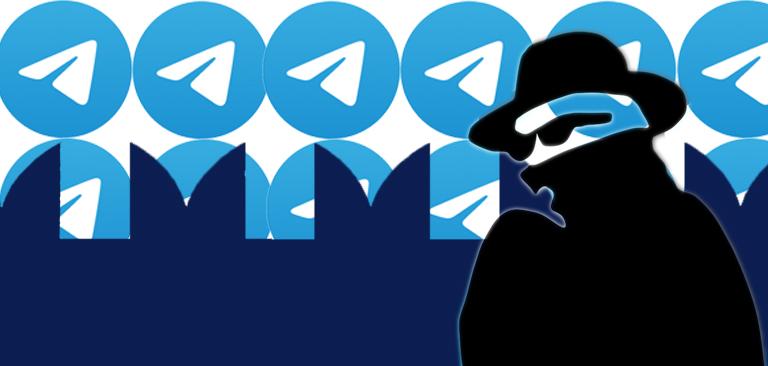
Now, having understood why Telegram is such a thing in Ukraine, let’s see if Kremlin-affiliated anonymous Telegram channels have any influence on Ukrainian political decisions. Texty.org.ua journalist Liubov Velychko approached this question by analyzing the content of the favorite telegram channels of the ruling Servant of the People party.
Since Ukraine is a parliamentary-presidential republic, the Verkhovna Rada, apart from adopting laws, has many other powers. It can appoint and dismiss the prime minister and members of the government, the head of the Security Service, the head of the National Bank, members of the central election committee and other key senior officials in the country. And since the Servant of the People holds the majority of seats in parliament, influencing their views means secretly directing political processes.

Zelenskyy’s party holds a majority of seats in the Ukrainian Rada
The “Servants” named five favorite Telegram channels:
- the anonymous Telegram-channel The Legitimate One (appears to be managed from Russia, judging from the content);
- the anonymous Telegram-channel Resident (appears to be managed from Russia, judging from the content);
- the anonymous Telegram-channel Dark Knight;
- the Telegram-channel of Servant of the People MP Maksym Buzhanskyi Maks Buzhanskyi;
- the Telegram-channel of Servant of the People MP Oleksandr Dubinskyi Dubinsky.pro.
“For me, Dubinsky.pro is a litmus test on how the faction will vote,” Oleksandr Fedienko, Chairman of the Subcommittee on Digital Infrastructure, Electronic Communications and Smart Infrastructure of the Parliamentary Committee on Digital Transformation, told Texty. Serhiy Hryvko, a member of the Parliamentary Committee on Social Policy and Protection of Veterans' rights, fully trusts the Dubinsky.pro Telegram channel and considers it a source of exclusive information.
Bohdan Yaremenko, a member of the parliamentary foreign policy committee, says he sometimes reads Dubinsky.pro and Dark Knight; at the same time, he says he is not able to tell whether what they are saying is completely true.
Even President Zelenskyy admitted to journalists that he subscribed to The Legitimate One and Dark Knight Telegram channels, however noting that he opened them several times and doesn’t read them anymore because “in general, there’s chaos and surrealism there.”
Texty analyzed over 10,000 messages from 1 September 2019 to 1 April 2020 to see how they could have influenced political processes in Ukraine.
P2P

The Telegram channels’ style is clearly politician to politician. The events, groups, personalities, and agendas they refer to are rarely clear to the average reader. During information wars for strategic decisions, the Telegram channels address the president, Prosecutor General, head of the Security Service directly. Sometimes they plead, sometimes they threaten, sometimes they flatter, according to Texty.
“Because they know that this information will definitely catch the eye of the authorities. After all, first of all, law enforcement agencies constantly monitor content that concerns the first persons of the state. And secondly, the VIPs themselves cannot restrain their curiosity and wander into the territory of rumors.”
I dare you, Zelenskyy
During the autumn of 2019, when Ukraine ventured into a troop withdrawal on the frontline in Donbas which was protested by many in Ukrainian society, particularly by war veterans, as being a step towards capitulation to Russia, the Telegram channels addressed the topic nearly 100 times. Each time, they persuaded the president that this was the right thing to do and dared him to push harder. Here are some examples from Texty:
- “It’s obvious that the civilian population in its 73% is in favor of a peaceful agenda and troop withdrawal";
- "A tough conversation with war veterans should show the public that Volodymyr Zelensky is no longer a comedian, but the president of Ukraine";
- [Past President] "Poroshenko with his manual radicals wants to impose war on the whole country to a victorious end. We hope for the strength and patience of Volodymyr Zelensky, who is able to bring peace to our country";
- This is "a test whether the president has any guts, with the troop withdrawals in Zolote and Petrivske.”
Did this influence Zelenskyy in any way? We won’t know for sure, but Zelenskyy’s spat with war veterans in Zolote with his proverbial “I’m not some loser!” was probably intended to show that the president “has guts” to push through with a controversial demilitarization initiative.

Currently, troop disengagement is happening over the frontline, with protests continuing. Critics say this move, intended as a step forward in the Minsk peace process, will do nothing to stop the shelling and shootouts in Donbas and leaves crucial Ukrainian positions on the frontline open to invasion by the militants of the Luhansk and Donetsk “People’s Republics.”
Lately, the Telegram channels are daring Zelenskyy to give in to Russian demands for Donbas that the aggressor is pushing onto Ukraine for the fifth year in a row while wearing out the country with a fizzling trench war. Namely - enshrining a special status for the occupied region in Ukraine’s Constitution and legalizing its Russian-assigned leaders in Ukraine’s political field by holding elections while it is still occupied.
“If Volodymyr Oleksandrovych really wants to become a peacemaker, let him establish peace in Donbas, even at the cost of his ratings” is how this challenge sounds, Texty writes. “The people are ready to give Donbas a special status” as they are “tired from blood and the pointless war in Donbas,” the Telegram channels assure Zelenskyy.
“Good” and “bad” cadres

Since Ukraine’s parliament has many powers, to gain the status of a “gray cardinal” of Ukrainian politics, it’s enough to explain to Ukrainian MPs who is a good and bad candidate, Texty writes.
For instance, 35-year-old Oleksiy Honcharuk
, the youngest prime minister in the history of Ukraine, was credited as proof of Zelenskyy’s honest ambitions to change Ukraine for the better. His sacking in March 2020 and the ensuing Cabinet reshuffle amid multiple crises stupefied Western observers and put Zelenskyy’s “reform credentials” under question.
The event is much less surprising if we consider how Honcharuk was attacked all of his term in the anonymous Telegram channels. During September 2019-April 2020, they explained to their readers that the Prime Minister is a “Down’s syndrome boy,” “ignoramus,” “loser,” “louse” etc. Only in 1% of the cases was he shown in a positive light. After several months of a killer information attack, 240 out of 246 Servant of the People MPs voted for his dismissal.

As well, there were zero positive messages about the head of the Prosecutor General’s Office Ruslan Riaboshapka, SBU Head Ivan Bakanov, and NABU head Artem Sytnyk. Riaboshapka was mentioned 264 times, 80% of which were negative.
The Telegram channels droned on about the need to have Riaboshapka dismissed, claiming that the “Prosecutor General’s office follows the instructions of the embassy of the USA, not the President’s Office” and that Riaboshapka demolished important anti-corruption cases. The loud accusations went mostly without proof but were seasoned with profanities.
The Telegram channels started offering praise for the Prosecutor General appeared only Iryna Venediktova, a fan of pro-Russian politician Andriy Portnov, assumed the position. One of her first steps on the job was to prematurely terminate the investigation of a high-ranking murder of a corruption whistleblower that her predecessor Riaboshapka had gone to great pains to get right. Another was to authorize a notice of suspicion for past President Poroshenko that Riaboshapka had refused to sign.
- Read more: New prosecutor general sabotages “litmus case” for Ukrainian justice
- Ukraine moves one step closer to jailing its former president; his supporters bring on the caricatures
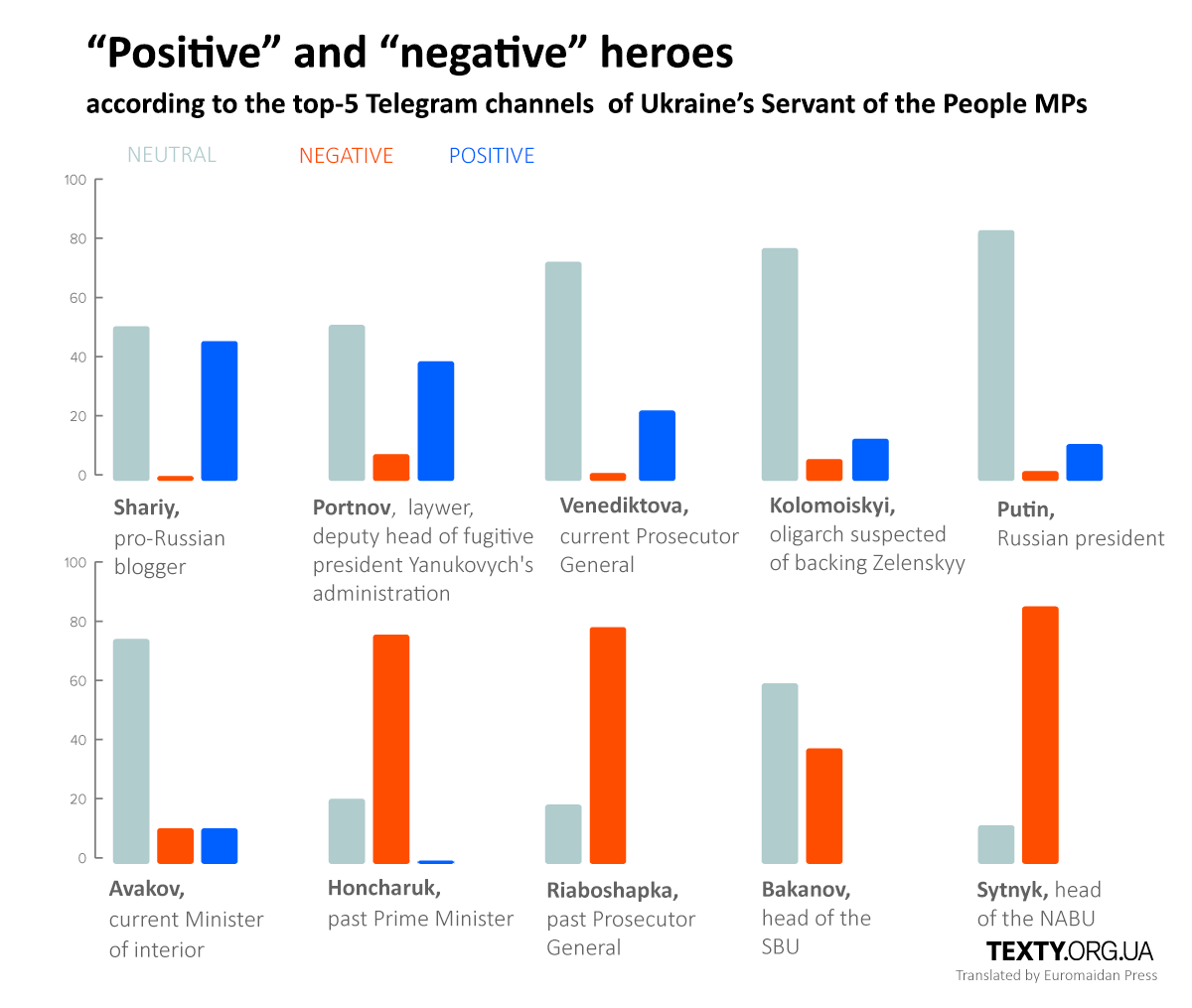
At present, [highlight]Artem Sytnyk, the head of the National Anti-Corruption Bureau (NABU) is under the attack of the Telegram channels[/highlight]. A campaign to dismiss Sytnyk has been underway for many months. If he is dismissed, the independence of this crucial anti-corruption institution will be compromised, [highlight]endangering Ukraine’s cooperation with the IMF and pushing it into the arms of Russia.[/highlight]
Vitaliy Shabunin, the head of the National Anti-Corruption Center, believes that this would be beneficial to oligarch Ihor Kolomoskyi, who would then have a chance to regain control over the nationalized Privatbank, and Minister of Interior Arsen Avakov, among others.
The police chief has been criticized for sabotaging the police reform and doing nothing to prevent attacks on civic activists. This has resulted in heinous crimes such as a police gang rape of a woman, drunk cops shooting a boy to death, a lethal acid attack on a whistleblower, and more.
Nevertheless, thanks to his consolidation of power over Ukraine’s law enforcement agencies, Avakov has managed to keep his position over the six years after Euromaidan.
- Read more: Avakov: Master of the People, Servant of the Siloviki
- Minister Avakov keeps dodging political responsibility for heinous police crimes
Hated by Ukraine’s civic society, who repeatedly rally for Avakov’s dismissal, he managed to keep his position after the Cabinet reshuffle, with Zelenskyy explaining the decision by saying that Avakov “is one of the most effective officials.” This coincided with repeated messages of the Telegram channels that “Avakov demonstrates great effectiveness on the backdrop of an unprofessional government,” is “the only effective silovik” and a “tough leader" who has "strategic abilities" and "apparatus thinking,” Texty wrote.
Denys Monastyrskyi, a Servant of the People MP who chairs the parliamentary committee on law enforcement, has spread the same message
, saying that the Ministry of Interior is one of the “strongest ministries” against the backdrop of others.
Given that the committee has twice failed to review a petition to dismiss Avakov, it is highly likely that the “master of the siloviki” will keep his position.
About Putin, with love
The Servant of the People’s favorite Telegram channels speak often and fondly about Russia and seldom about the EU, Texty finds.
Here is how the Dark Knight criticizes the EU-Ukraine Association Agreement:
“In whose personal interests and in the interests of which countries did Ukraine turn wrong in 2013? Why the hell do we need it, this Europe?”
Russian President Vladimir Putin is viewed in a positive (87% of messages) or neutral (12%) light. [highlight]There was not a single (!) negative message about the leader of the aggressor country; on the contrary, he was called a “peacemaker” and “strategist.”[/highlight]
Continuing the tolerant attitude to Russia, the Kremlin was also portrayed in a neutral light. And Russia’s war against Ukraine was called “internal Ukrainian conflict,” “civil war,” “Donbas case,” “conflict in Donbas,” “conflict in the Ukrainian southeast.” Promoted are pro-Russian actors such as fugitive blogger Anatoliy Shariy or lawyer and deputy head of fugitive ex-President Yanukovych’s administration Andriy Portnov.
The rhetoric of the Telegram channels made its way to the Ukrainian public sphere: after The Legitimate One shared “insider material” about Zelenskyy reaching a deal with Putin on direct purchases of Russian gas, commenting that it will save “millions of dollars” for the Ukrainian economy in December 2019, the same thesis was repeated by a young Servant of the People MP.
Are some of them run from Russia?

While the Maks Buzhansky and Dubinskyi.pro channels are ostensibly run by Servant of the People MPs and nothing definite can be said about the Dark Knight, what about Resident and The Legitimate One?
There is no direct proof that they are managed from Russia, Texty says. However, there are many indications, and the devil is in the details:
- It is unlikely anybody else is interested in praising Russia and pro-Russian actors in Ukraine while lambasting and denigrating other politicians;
- The channels refer to occupied Donbas exactly as the Russian Wikipedia does - as “unrecognized republics,” while in Ukraine they are referred to as “terrorist organizations.” They also use the Russian pronouns for Ukraine - “na Ukrayine” instead of “v Ukrayine,” which is akin to the English equivalent of “the Ukraine” vs “Ukraine.” In Ukraine, nobody uses “na,” it is considered a hallmark of colonialism;
- The channels cite Russian media, even if European media report the same news;
- The channels care about the reputation of Russia: for instance, they promoted a study of a pro-Russian media “debunking” information on the Russian origins of rockets that downed a Ukrainian airplane in Iran (in fact, they were actually Russian). At the same time, over seven months, they said nothing about the downing of MH17, which was shot down by a Russian crew above Donbas in 2014.
"These social media channels assure that their unknown admins have a plethora of contacts among the Ukrainian Office of the President, Ministry of Foreign Affairs, Security Service, Ministry of Interior, and other agencies.
At the same time, they cite their sources in the Russian Kremlin, FSB, GRU, and 'highest echelons' of the 'Luhansk People’s Republic,' which supposedly leak classified information from the “Kremlin kitchen” and international negotiations into Telegram," Texty writes.
No Russian media can boast of having such a level of knowledge.
“But the Telegram channels don’t care: they exploit the image of informed strangers who appear to be close people thanks to their informal vocabulary.”
This image is convincing: the “leaks” and “insider information,” which are more likely to be rumors and fakes, often end up in real media outlets, poisoning the mainstream Ukrainian discourse. However, some political forecasts do turn out to be true, building trust to these sources and masking the overarching, pro-Russian messaging of these channels.
And because politicians reading them for the “insider” information can’t distinguish what is true and what is not, they end up repeating the messages, again spreading Kremlin messages in the Ukrainian information sphere.
A springboard for pro-Russian messaging

We’ve seen above how the Telegram channels’ “politician-to-politician” style influences Ukrainian decision-makers: they nudge them to decide in a certain way by approving some decisions and criticizing others. This was most clearly seen in the resignations of Prime Minister Honcharuk and Prosecutor General Riaboshapka.
But their influence is greatly multiplied when Ukrainian media outlets pick up the messages. According to Texty.org.ua’s project to automatically monitor disinformation in the Ukrainian media space, mainstream media outlets rarely cite anonymous Telegram outlets - only 0.8% (180 out of 24,000 articles) did. [highlight]However, junk websites do. [/highlight]
Having clickbait headlines but no editorial standards or contact information, these news manipulators are at the forefront of Russia’s information war against Ukraine. And they love anonymous Telegram channels. [highlight]70 Ukrainian junk websites hyperlinked them some 3,000 times during 1 January - 15 July 2020.[/highlight]. “The Legitimate One” and “Resident,” which are pushing the Kremlin’s agenda, were among the top-5 anonymous channels they cited, Yuliya Dukach, who analyses disinformation at Texty, told.
These junk websites, although not having the reputation of serious media, spread like wildfire in social media. Often the only thing readers will bother to read before sharing the article is the headline. This is however enough to ensure a propagandistic effect - and to spread pro-Kremlin narratives in the Ukrainian information space.
The bottom line
The anonymity and lack of moderation offered by the Telegram messaging app have created a new ecosystem for disseminating disinformation.
However, between the real “insider” information and forecasts that come true, there is space for fakes, manipulations, and pro-Russian narratives which most readers can’t distinguish from true information. This is the basis of the work of a pro-Russian network of Telegram channels operating in Ukraine. At least two of the accounts appear to be managed from Russia.
The channels work in two directions:
- They influence decision-makers. The language of the channels is “politician to politician,” addressing those in the know of everyday political internecine struggles. Ukrainian politicians are subscribed to the channels. The messaging of the channels overtly supported the dismissal of some candidates and appointment of others. The Ukrainian parliament had on several occasions made surprise votes in line with this messaging, and the actions of the Ukrainian President were at times identical to what the channels proposed. At times, decision-makers reiterate messages spread by the Telegram channels.
- They influence the Ukrainian media sphere. The “insider information” along with ordinary manipulations and disinformation spread by the channels seeps into junk websites which are popular in social media, thereby influencing the public consciousness. As well, mainstream media outlets report on messages told by Ukrainian politicians, who sometimes repeat what they heard in the channels.
The messaging five favorite Telegram channels of the ruling mono-majority Servant of the People party was starkly pro-Russian and anti-western, promoting the comeback of Ukraine’s pre-Euromaidan ancien regime and new pro-Russian politicians. They should be viewed in light of the continuing anti-western messaging campaign driven by oligarchic media which attempts to smear pro-democratic reformers and push Ukraine to once again make a U-turn in foreign policy.
The propaganda effects of these operations should not be underestimated. Repeating the same narratives ad nauseum, they little by little shape a reality in which Ukraine’s Euromaidan revolution and push away from Russia is seen as a mistake, preparing the ground for a comeback of pro-Russian politicians.
Read also:
- Journalist threatened after uncovering pro-Russian Telegram channels and their influence on president’s party MPs
- Ukrainian democratic forces under attack by pro-Russian revanchists
- Putin’s best buddy in Ukraine ramps up anti-Soros smear campaign
- A guide to Russian propaganda. Part 5: Reflexive Control
- A guide to Russian propaganda. Part 6: Spetspropaganda, the secret Soviet art of brainwashing

